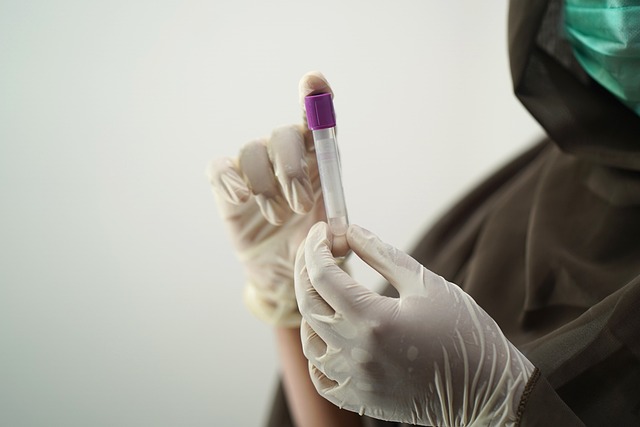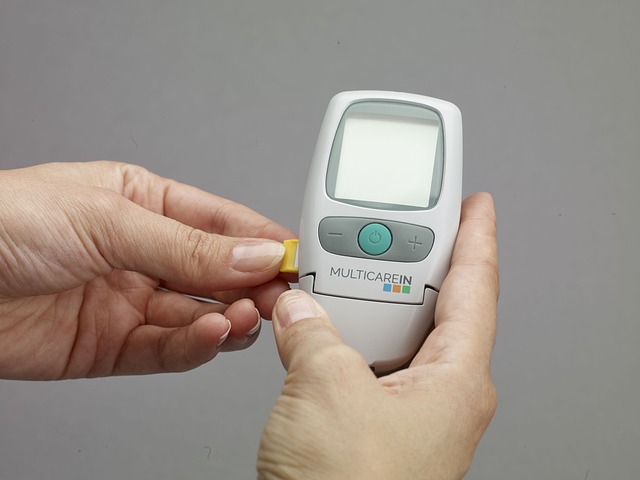The UK Testosterone Blood Test is an integral diagnostic tool for assessing men's hormonal health, essential for understanding sexual health, reproductive function, muscle mass, bone density, and overall well-being. It is recommended by the National Institute for Health and Care Excellence (NICE) for clinical scenarios such as suspected hypogonadism or during fertility assessments. The test measures testosterone levels, which should be taken in the morning due to their circadian rhythm, with blood typically drawn from an arm vein. Results are reported in either nanomoles per liter (nmol/L) or picograms per milliliter (pg/mL). Patients must adhere to fasting instructions and inform healthcare providers of any medications that may affect testosterone levels. This test is vital for personalized healthcare, guiding treatment based on the results.
Additionally, a thyroid examination kit is crucial for diagnosing and managing thyroid disorders in the UK. It includes educational materials, a home sampling kit for blood collection, return envelopes, and access to accredited laboratories. This kit allows patients to conveniently collect samples for a range of tests, including the UK Testosterone Blood Test, which is key to assessing hormonal balance affecting thyroid function. It complements other thyroid function tests like TSH, T4, and occasionally T3 levels to provide a comprehensive thyroid status overview. Accurate results from these tests are vital for healthcare providers to make informed decisions about patient care, enabling early intervention and effective management of thyroid disorders in the UK. Adherence to standardized preparation protocols, including fasting and medication disclosure, is crucial for accurate test outcomes, allowing for tailored treatment plans and monitoring over time using NHS reference ranges that account for genetic, environmental, and lifestyle factors specific to British individuals, thereby improving patient care nationwide.
navigator through the complexities of thyroid health, this comprehensive guide delves into the intricacies of a thorough thyroid examination kit tailored for UK patients. We explore the nuances of the UK Testosterone Blood Test, demystifying its role in assessing thyroid function, and outline what to anticipate during your examination. This article serves as an essential resource, equipping you with the knowledge to prepare for and interpret your test results accurately within the UK healthcare system. Join us as we illuminate the path to understanding your thyroid health, ensuring you are well-informed and empowered to take charge of your well-being.
- Understanding the UK Testosterone Blood Test: A Guide for Patients
- What to Expect from a Thyroid Examination Kit: Essential Components and Procedures
- Maximizing Accuracy: How to Prepare for and Interpret Your Thyroid Test Results in the UK Context
Understanding the UK Testosterone Blood Test: A Guide for Patients

Undergoing a testosterone blood test is a crucial step for UK patients seeking to understand their hormonal health. This guide aims to demystify the process and provide clear, concise information on what to expect from a UK Testosterone Blood Test. The test measures the level of testosterone, an androgen hormone, in the bloodstream. It is essential for assessing male sexual health, reproductive function, muscle mass, bone density, and overall well-being. For UK patients, the National Institute for Health and Care Excellence (NICE) provides guidelines on when this test should be administered, such as in cases of suspected hypogonadism or during investigations into infertility. The test is typically conducted early in the morning because testosterone levels fluctuate throughout the day, and are generally at their highest upon waking. Patients can expect to have blood drawn from a vein in the arm, often from the inside of the elbow or the back of the hand. The sample is then sent to a laboratory for analysis, where it is measured in nanomoles per liter (nmol/L) or picograms per milliliter (pg/mL), with results indicating normal, low, or high levels based on age and other health considerations.
When preparing for a UK Testosterone Blood Test, patients should ensure they have followed any dietary or fasting instructions provided by their healthcare provider. It is also important to inform the healthcare professional of any medications or supplements being taken, as these can affect testosterone levels. The results of the test will be interpreted by a qualified medical practitioner who will discuss the findings with the patient and recommend further steps if necessary. Understanding the outcomes of this test is vital for tailored treatment plans that address hormonal imbalances and contribute to maintaining optimal health.
What to Expect from a Thyroid Examination Kit: Essential Components and Procedures

A thyroid examination kit serves as an invaluable tool for both healthcare professionals and patients seeking to understand their thyroid health, particularly when assessing potential thyroid disorders or monitoring treatment progression. For UK patients, a comprehensive thyroid examination kit should include essential components such as a patient information leaflet, a home sampling kit for blood collection, pre-addressed return envelopes, and laboratory analysis services accredited by the relevant UK health authorities. The kit’s procedures typically begin with clear instructions for self-sampling of blood at home for a UK testosterone blood test, which is crucial for evaluating hormonal imbalances that can affect thyroid function. This test, along with other thyroid function tests like TSH (thyroid-stimulating hormone), T4, and sometimes T3 levels, provides a comprehensive picture of thyroid health. After sampling, the blood sample is securely sent to a laboratory for analysis, where clinicians can interpret the results to make informed decisions about patient care. The kit ensures that patients receive timely and accurate information about their thyroid status, facilitating early intervention and effective management of thyroid disorders in the UK context. It’s important for patients to follow the provided guidelines closely to ensure the validity of the test results, enabling healthcare providers to tailor treatments to individual needs.
Maximizing Accuracy: How to Prepare for and Interpret Your Thyroid Test Results in the UK Context

In the UK, maintaining accurate thyroid test results is paramount for effective diagnosis and treatment. Patients undergoing a thyroid function test, such as the UK Testosterone Blood Test, can maximize accuracy by following a standardized preparation protocol. This typically involves fasting for a certain period before the test, as eating can influence thyroid hormone levels. It is also crucial to inform healthcare providers of any medications being taken, as these can affect the test outcomes. Additionally, consistent attendance for follow-up tests allows for tracking thyroid function over time, which is essential for patients with thyroid disorders like hypothyroidism or hyperthyroidism. Interpreting thyroid test results in the UK context requires an understanding of the reference ranges specific to the National Health Service (NHS) guidelines. These ranges are tailored to the general population within the UK and take into account genetic, environmental, and lifestyle factors prevalent among British patients. Therefore, healthcare professionals utilize these reference ranges to provide personalized care, ensuring that thyroid disorders are diagnosed with precision and treated effectively, thereby improving patient outcomes across the nation.
In conclusion, a comprehensive thyroid examination kit serves as an indispensable tool for patients in the UK seeking to understand their hormonal health, particularly with regard to testosterone levels. This kit encompasses all necessary components and procedures for a thorough assessment, ensuring patients can accurately gauge their thyroid function. Understanding the nuances of the UK Testosterone Blood Test is crucial for interpreting results within the context of the country’s healthcare standards. By adhering to the guidance provided in this article, individuals can maximise the accuracy of their test outcomes, leading to informed decisions regarding their treatment and overall well-being. Patients are encouraged to engage with their healthcare providers to fully utilise these resources for optimal health management.
